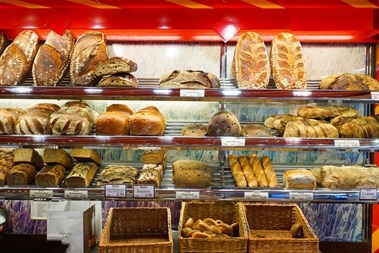Germany’s bakery and cereals market – with a volume of 6.4 billion kg and a value of US$25.9 billion in 2014 – is forecast to register a compound annual growth rate (CAGR) of 1.1% between 2014 and 2019 by volume, and a lower CAGR of -0.5% by value, according to a Canadean report.
Despite Germany’s economy being considered stable, value-conscious German consumers are still vastly driven by the desire for best value, which is motivating 19.8% of bakery and cereals consumption.
“More consumers have turned to retailers such as ALDI and LIDL in the search for value, leaving more premium brands with a challenge to justify higher prices to consumers,” says analyst Veronika Zhupanova.
Indulgence is the reason to trade-up
To avoid a race to the bottom, manufacturers need to justify the price – and they can do this by appealing to the motivator that is more important than price to Germans – the desire to treat themselves.
About 31.9% of bakery and cereals consumption are motivated by superior taste sensations, reflecting how German consumers consider indulgence to be worth trading-up for.
This is especially true for cookies, where this desire motivates 40.6% of consumption, as well as for cakes, pastries and sweet pies (36.8%) and savory biscuits (34.9%).
“As consumers prioritize taste above all, manufacturers can target them with decadent flavor combinations, such as breakfast cereals with dark chocolate, sweet pomegranate seeds and savory nuts,” says Zhupanova.
The report states that manufacturers should explore cross-promotion meal deals to maximize taste sensations for consumers, such as offering breakfast cereals with flavored milk, or spicy and hot pastries paired with a sweet carbonated chilled drink, or matching savory biscuits with certain types of cheese and wine.
“Such deals not only make the product more indulgent, but will also help consumers to save costs,” says Zhupanova.










